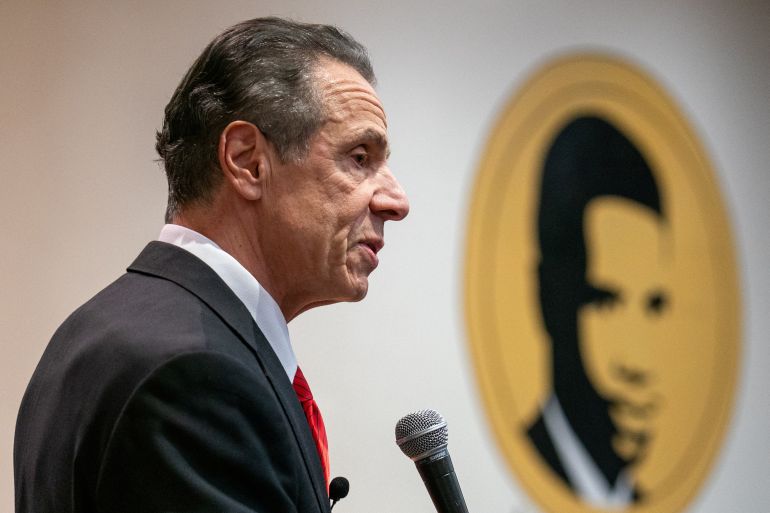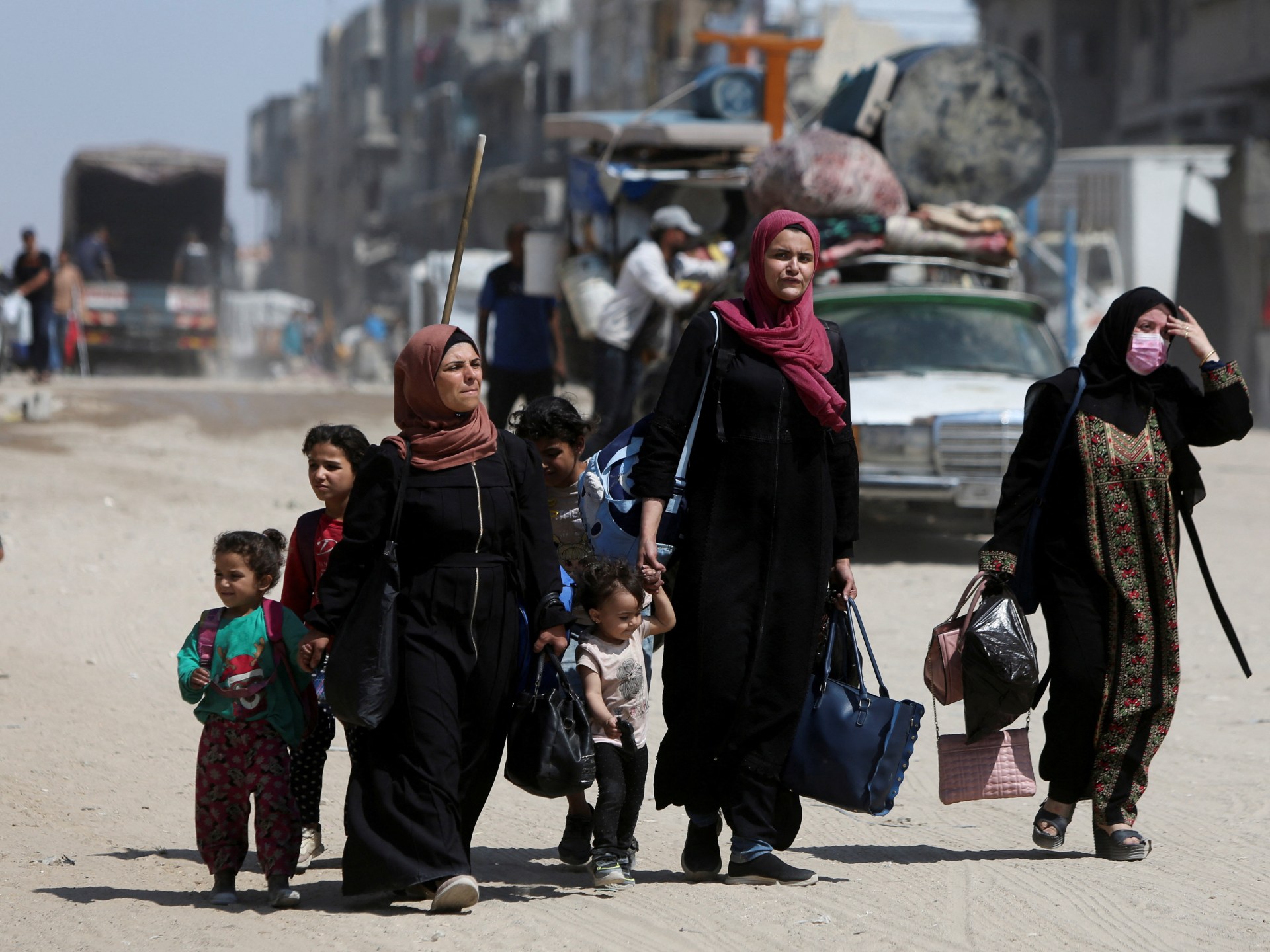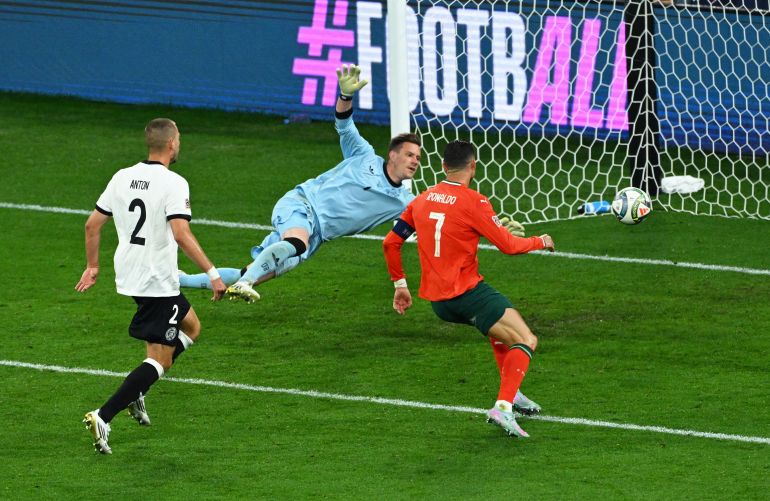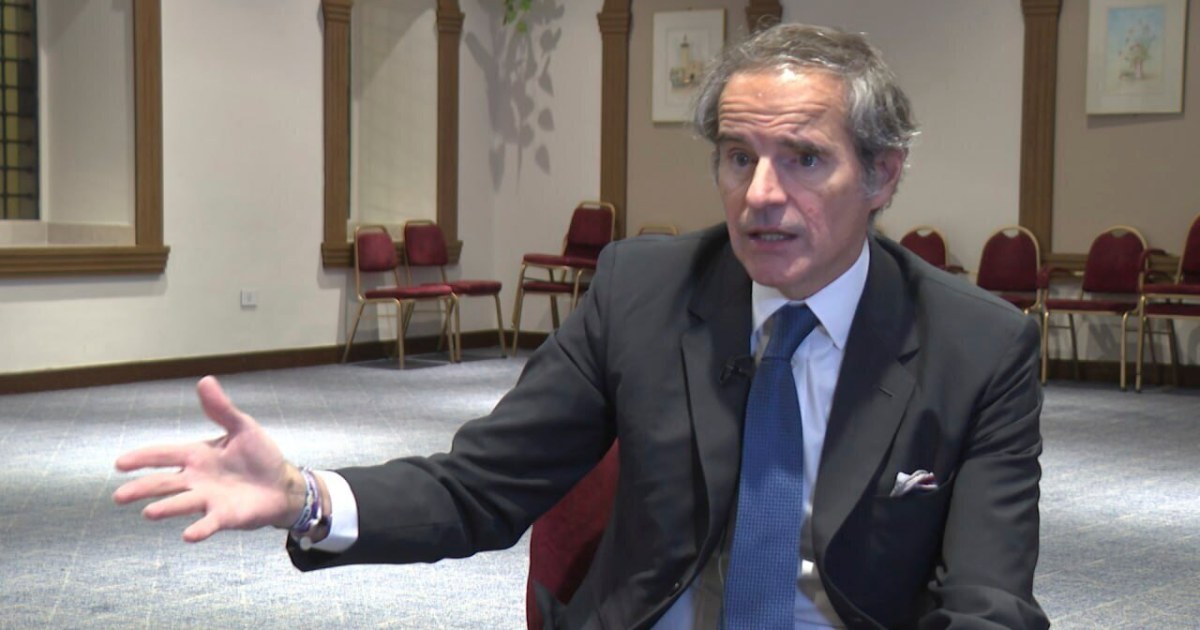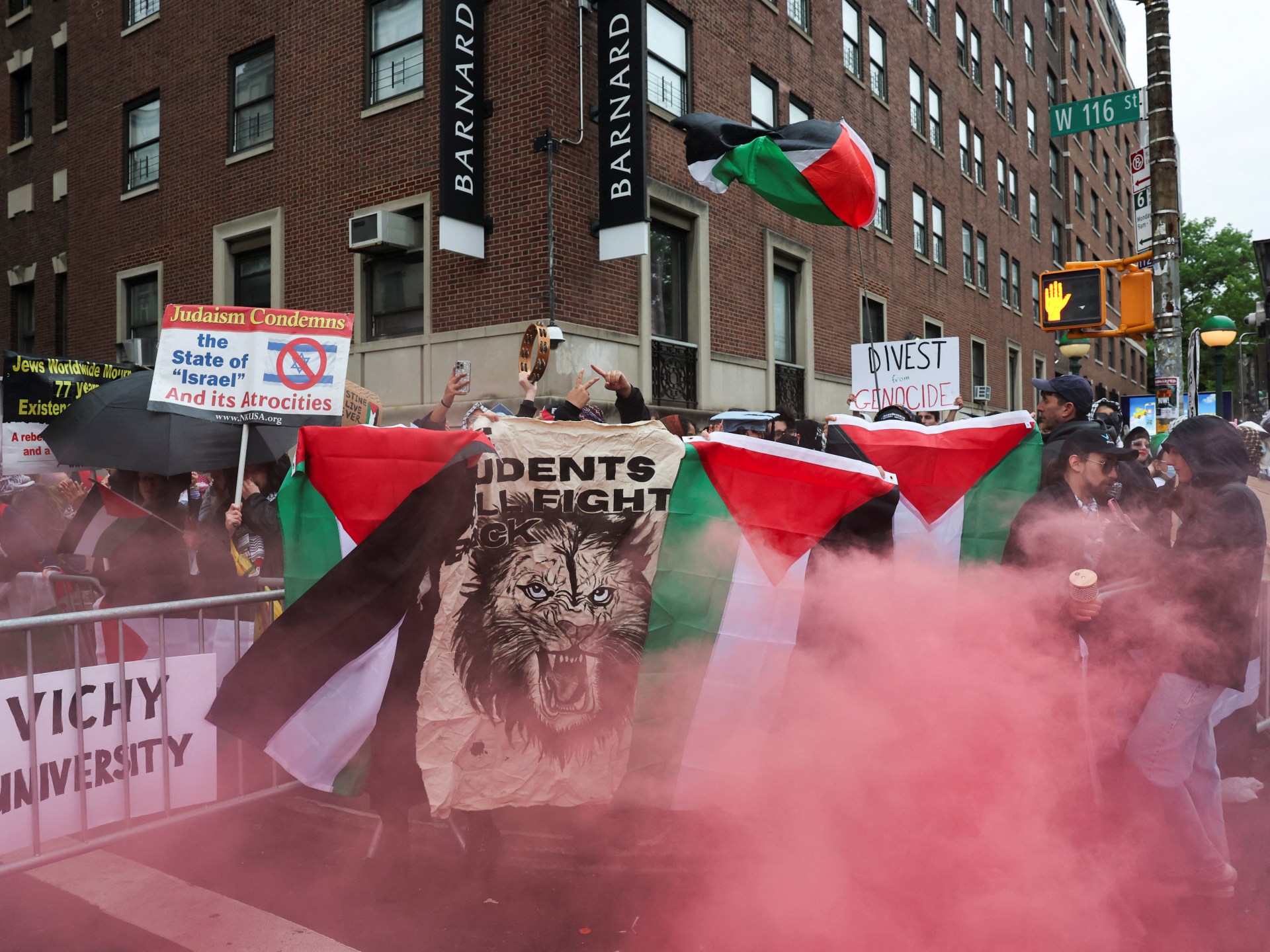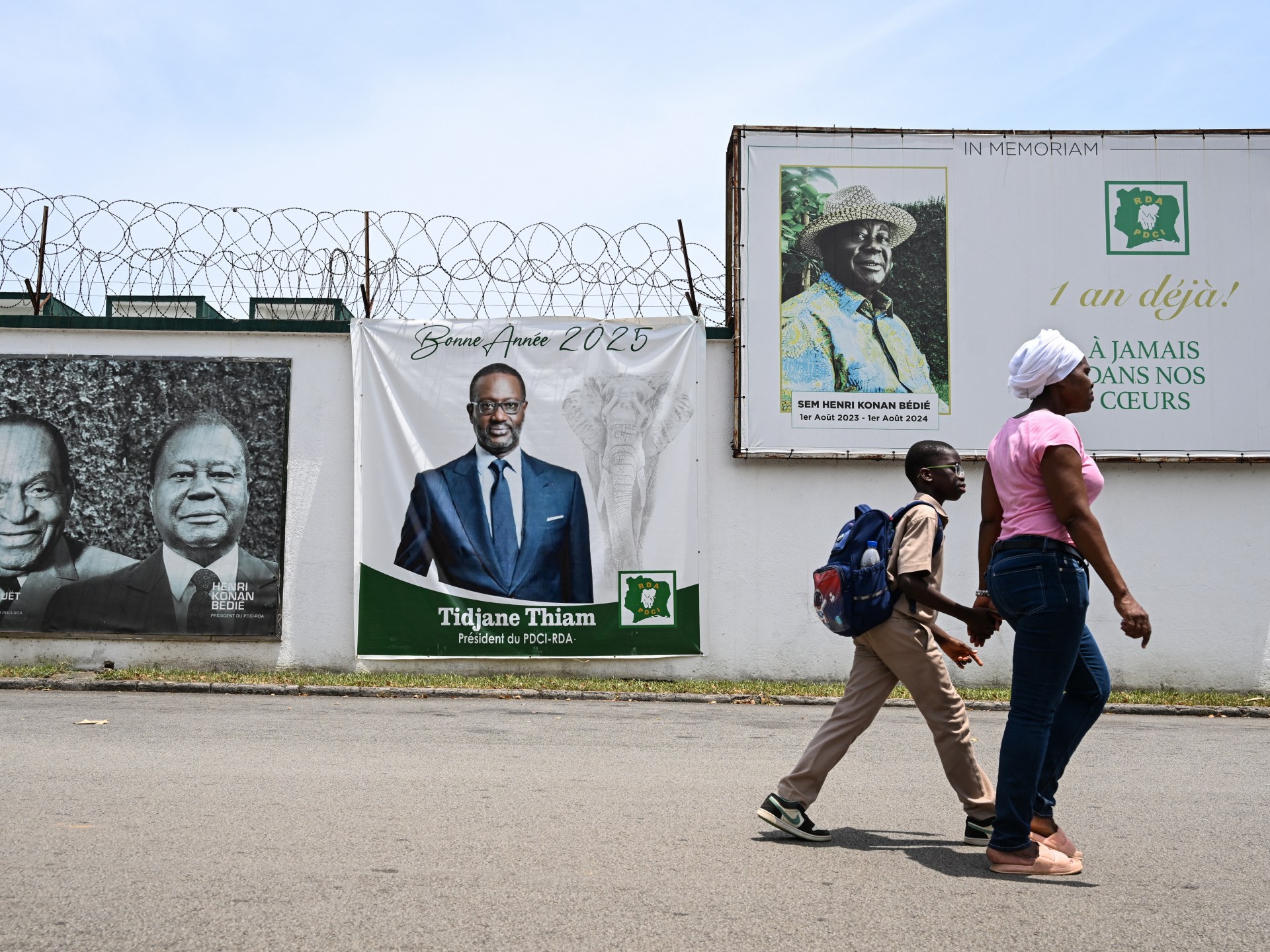In the New York City mayoral race, a young immigrant who identifies as a democratic socialist is taking on a centrist former governor from a political dynasty.
With state legislator Zohran Mamdani and ex-Governor Andrew Cuomo leading the race, the New York Democratic primary is seen as a reflection of the battle between progressive activists and the conservative old guard of the United States Democratic Party.
The Democratic candidates will meet for a debate on Wednesday night, ahead of the primary vote on June 24.
Missing from the stage will be incumbent Eric Adams who was elected as a Democrat four years ago. The current mayor is running for re-election as an independent amid dwindling popularity.
Here is a look at the elections in the Big Apple and what it could mean for the city and the country.
Why are the primaries important?
New York City is solidly Democratic, so the party’s nominee is likely to cruise to victory in November.
In 2021, then-Democratic candidate Eric Adams beat Curtis Sliwa, the Republican nominee, by nearly 40 percentage points. Adams has since garnered a national profile.
What’s at stake?
The next mayor will be the executive of the largest city in the United States – tackling numerous issues and pressing challenges, including housing, cost of living, congestion and public transport.
The implications for New Yorkers are obvious, but the outcome of the race will also affect the nearly 65 million people who visit the city every year.
New York is a major financial and cultural hub, not just for the US but for the entire world.
Politically, the primary race could serve as a bellwether for the Democratic Party and the electoral viability of left-wing candidates ahead of the congressional midterm elections next year and the presidential vote two years later.
The job comes with a national profile. The last three New York mayors ran for president.
Who are the frontrunners?
In the Democratic primaries, the two frontrunners are Cuomo, 67, and Mamdani, 33.
The son of a former governor, Cuomo has an extensive resume. He served as the US Secretary of Housing and Urban Development and New York attorney general before becoming the state’s governor in 2011.
He resigned in 2021 after a sexual harassment scandal and is now staging what was once thought to be an unlikely political comeback, rebuilding alliances with politicians who called on him to step down a few years ago.
He is running a campaign focused on improving the management of the city, addressing mental health issues and “combating anti-Semitism”.
If Cuomo is the ultimate insider, Mamdani is his foil as a political insurgent.
Born in Uganda to parents of Indian descent, Mamdani, who is endorsed by the Democratic Socialists for America (DSA), has been serving in the state assembly since 2021.
He is running on a progressive platform that includes freezing rent, eliminating fees for public buses and establishing affordable, city-owned grocery stores.
Mamdani’s rise in the polls has been fuelled by small donors and an “army” of left-wing volunteers.

Who else is running?
Also running on the Democratic side are city comptroller Brad Lander; New York City Council Speaker Adrienne Adams; former comptroller Scott Stringer; State Senator Jessica Ramos; State Senator Zellnor Myrie; Michael Blake, a political consultant and former state legislator; and Whitney Tilson, an investor.
Incumbent Mayor Eric Adams is running as an independent after the scandals and investigations that have plagued his tenure.
Conservative activist Curtis Sliwa is the sole Republican in the race.
What are the key dates?
The first Democratic debate will take place on June 4, and the second and final one is set to take place on June 12. Early voting starts on June 14, and the primary election is on June 24.
The general election will be on November 4.

What is ranked choice voting?
In local elections in New York City, one can vote for as many as five candidates at once with the ranked-choice system.
Here’s how it works: Voters choose their candidates in order of favourability. In the first round of counting, the top choice votes are tallied. If no candidate gets more than 50 percent, more counting ensues with the bottom candidate removed.
With each new round, the votes of the eliminated candidate are counted by the next choice on the ballot.
What do the polls say?
Cuomo is leading the race, according to most surveys. An Emerson College poll last week showed the former governor with 35.1 percent support as a first choice – ahead of Mamdani with 22.7 and Lander with 10.5.
Mamdani may appear like a distant second, but his rise in the race has been stunning. He was polling at 1 percent in February, according to an Emerson survey.
The democratic socialist lawmaker does have a path to victory – consolidating the anti-Cuomo vote in the later rounds of counting.

Why has Israel-Palestine been a key issue in the race?
The next New York City mayor will not be deciding how much military aid Israel gets or how the US will vote on United Nations Security Council proposals calling for a ceasefire in Gaza.
Yet, the conflict in the Middle East has been a factor in the local elections.
Mamdani has been an outspoken supporter of Palestinian rights. He participated in a hunger strike outside the White House in November 2023 to demand an end to the war on Gaza.
His positions have sparked outrage from Israel’s backers. Although Mamdani is a citizen, Republican New York City Council member Vickie Paladino called for his deportation on Monday.
Paladino later doubled down in response to the outrage over her statement, claiming that Mamdani would not have been eligible for citizenship under the current regulations due to his involvement in pro-Palestine groups.
For his part, Cuomo has positioned himself as Israel’s top defender, accusing several of his opponents – not just Mamdani – of being too critical of the US ally.
“It’s very simple: anti-Zionism is anti-Semitism,” he said in April.
Fix the City, a pro-Cuomo political group, has received large donations from pro-Israel donors, including $250,000 from billionaire Bill Ackman, according to New York’s Campaign Finance Board.
New York City – home to Columbia University – has seen waves of protests against US support for Israel’s war in Gaza, which has killed more than 54,600 Palestinians.
